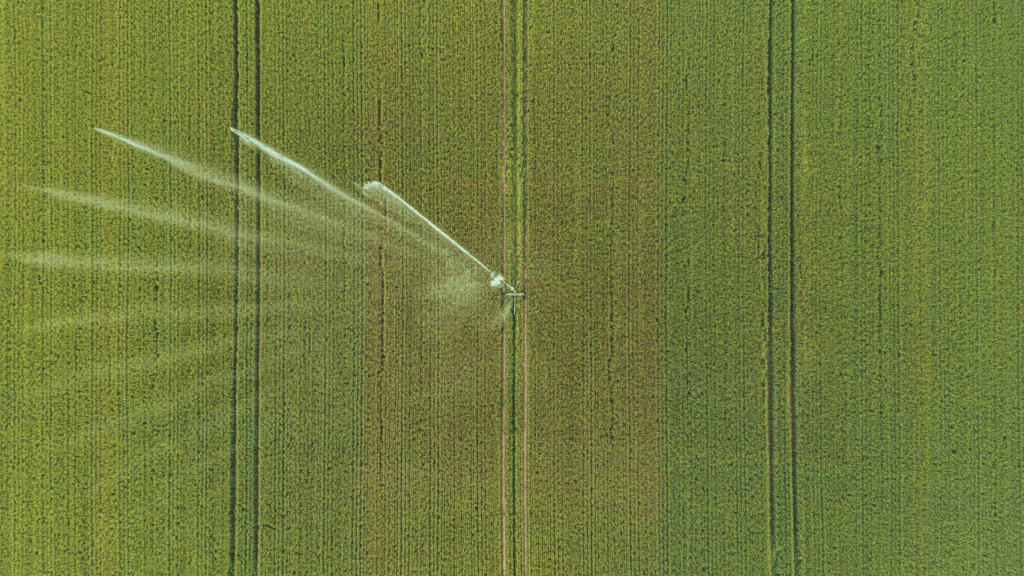Understanding Sustainable Farms
Sustainable farms employ agricultural practices that focus on preserving natural resources, reducing environmental impact, and promoting long-term agricultural productivity.
These farms integrate eco-friendly techniques to manage soil health, water use, and biodiversity, ensuring ecosystems remain balanced and productive.
Core Principles
- Soil Health: Crop rotation, organic fertilization, and reduced tillage methods keep soil fertile and healthy. For example, rotating legumes with cereals helps replenish soil nitrogen levels.
- Water Management: Efficient irrigation systems, rainwater harvesting, and drip irrigation minimize water usage. These practices conserve water resources while maximizing output.
- Biodiversity: Diverse crop planting mitigates pest problems and reduces the need for chemical pesticides. Farms grow multiple species to create resilience against diseases and pests.
Benefits
Sustainable farms offer multiple benefits to both the environment and society. They reduce greenhouse gas emissions, conserve resources, and enhance food security by promoting local production.
- Environmental: Practices like agroforestry and cover cropping sequester carbon, reduce erosion, and maintain air and water quality. These methods contribute to mitigating climate change.
- Economic: Investment in sustainable farming reduces dependency on external inputs, thereby lowering costs in the long run. Farmers gain resilience against market fluctuations.
- Social: Community-supported agriculture (CSA) programs strengthen local economies and provide fresh, local produce to communities. This fosters a sense of collective responsibility towards the environment.
Challenges
Despite the benefits, sustainable farming faces significant challenges.
- Financial Constraints: High initial costs and limited access to credit can be hurdles, especially for small farms.
- Technical Knowledge: Farmers need education on sustainable practices, which may require additional resources for training and development.
- Market Dynamics: The demand for sustainably grown produce sometimes lags, influencing farm revenues.
Role of Nonprofits
Nonprofits address these challenges by providing essential support. They fund research, disseminate information on best practices, and advocate for policies promoting sustainable farming.
- Grants and Funding: Financial assistance through grants helps farms cover the initial costs of adopting sustainable methods.
- Technical Assistance: Programs offering training and resources enable farmers to implement effective sustainable practices.
- Advocacy: Nonprofits work to influence public policy, creating a more favorable environment for sustainable agriculture.
Understanding sustainable farms reveals their pivotal role in creating a resilient and eco-friendly food system, one supported significantly by nonprofit efforts.
The Importance of Nonprofits in Agriculture

Nonprofits support sustainable farming by offering resources that small and mid-sized farms often lack. Their role is vital for the success of sustainable agricultural practices.
Historical Context
Nonprofits have long been allies of sustainable agriculture. In the mid-20th century, many organizations emerged to address industrial farming practices’ negative impacts. By the 1970s, groups like the Rodale Institute and the Environmental Working Group began advocating for organic farming and soil health. Their early efforts laid the foundation for today’s broader movement towards sustainability in farming.
Economic Impact
Nonprofits contribute significantly to the agricultural economy by funding sustainable farms. They provide grants to farmers, helping them invest in eco-friendly technologies, which might otherwise be too costly.
For example, Organic Valley, a nonprofit cooperative, supports farmers through financial assistance and market access, leading to increased income and stability for farm owners. Additionally, nonprofits like Farm Aid offer emergency grants to farms in crisis, ensuring continued operations and employment in rural areas.
Key Nonprofits Involved in Sustainable Farming
Nonprofits play a vital role in funding sustainable farms. Various organizations, both national and local, contribute significantly to this sector.
National Organizations
Organic Farming Research Foundation
The Organic Farming Research Foundation (OFRF) supports organic farmers nationwide. They provide grants for research and education programs aimed at transitioning to organic farming methods. Their advocacy efforts influence policy decisions that benefit organic agriculture.
Farm Aid
Farm Aid raises funds through concerts and donations to support family farms. They offer emergency grants, advocate for agriculture-friendly policies, and connect farmers to resources that foster sustainable practices.
The Rodale Institute
The Rodale Institute has been a pioneer in organic farming research since the 1940s. They provide extensive resources, including training programs and certifications, to reinforce sustainable agriculture.
Local and Regional Initiatives
The Northeast Organic Farming Association
The Northeast Organic Farming Association (NOFA) serves the northeastern United States. They offer workshops, technical assistance, and certification programs to support farmers in adopting organic practices.
California Certified Organic Farmers
California Certified Organic Farmers (CCOF) focuses on the state of California. They provide certification services and financial assistance to promote organic farming, enhancing sustainability in the region.
The Appalachian Sustainable Agriculture Project
The Appalachian Sustainable Agriculture Project (ASAP) works in the southeastern United States. They connect farmers with local markets, provide educational programs, and support policy initiatives that benefit sustainable farming practices.
These nonprofits, whether national or regional, play a crucial role in ensuring the viability and growth of sustainable farms. Their combined efforts make significant strides in promoting environmental stewardship in agriculture.
Funding Mechanisms Used by Nonprofits
Nonprofits employ diverse funding mechanisms to support sustainable farms. These efforts help farms adopt and maintain eco-friendly practices.
Grants and Subsidies
Nonprofits provide grants and subsidies to help sustainable farms cover operational costs. These financial aids often target activities that improve soil health, water conservation, and biodiversity. For example, the Rodale Institute offers grant programs that support regenerative farming.
Similarly, the Northeast Organic Farming Association provides subsidies for organic certification, making it easier for small farms to adopt sustainable practices. By reducing financial barriers, these grants and subsidies enable farms to implement and sustain environmentally beneficial methods.
Partnerships with Private Sector
Nonprofits often form partnerships with private sector companies to amplify funding for sustainable farms. These collaborations can include sponsorships, joint ventures, and corporate social responsibility initiatives. For instance, Farm Aid partners with businesses to raise funds for farm disaster relief and sustainability projects.
Another example is Organic Valley working with retailers to promote organic products while funding educational programs for farmers. By aligning with the private sector, nonprofits expand their reach and resources, supporting a larger number of sustainable farms.
Case Studies of Successful Nonprofit-Funded Farms
Nonprofits have been catalytic in aiding farms to transition to and sustain eco-friendly agricultural practices. Here are detailed case studies illustrating the impact of nonprofit funding in both urban and rural farm settings.
Urban Farm Projects
Nonprofits have revolutionized urban farming by converting vacant city spaces into productive agricultural sites. GrowNYC, a standout organization in New York City, transforms neglected lots into community gardens.
They received substantial grants from GreenThumb and Citizens Committee for New York City, enabling over 130 community gardens to thrive and provide fresh, local produce to urban populations. Participants gain hands-on experience in sustainable practices, fostering environmental awareness.
City Green in New Jersey, funded by private foundations and public grants, is another success. This nonprofit’s mission is to establish and enhance urban farms and gardens.
Their Farms in New Jersey Initiative, backed by the Geraldine R. Dodge Foundation, supports urban agriculture by offering financial assistance, workshops, and resources. They’ve helped numerous urban farms adopt sustainable methods and improve food security.
Rural Community Farms
In rural areas, nonprofits have been equally influential. The Midwest Organic and Sustainable Education Service (MOSES) exemplifies success in supporting rural sustainable farms.
Through funding from the USDA’s Sustainable Agriculture Research and Education (SARE) program, MOSES has provided critical training and resources to countless farmers across the Midwest. Their conference, the largest organic farming event in the US, educates farmers on sustainable practices.
The Northeast Organic Farming Association (NOFA) has played a pivotal role across several states. Funded by various grants, including ones from the National Institute of Food and Agriculture (NIFA), NOFA emphasizes organic and sustainable farming practices.
They host workshops, provide technical assistance, and distribute funds to help rural farmers transition to sustainable agriculture methods, resulting in long-term environmental and economic benefits.
These case studies highlight how nonprofits have achieved significant progress in both urban and rural farming landscapes through targeted funding and support.
Challenges and Opportunities
Nonprofits encounter several challenges while supporting sustainable farms, but there are also numerous opportunities to overcome these hurdles.
Regulatory and Policy Hurdles
Government regulations often pose significant challenges. For instance, stringent food safety standards can require costly compliance measures that strain resources. Certification processes, like organic labeling, also involve rigorous documentation and inspections, which can be expensive for small farms.
Policy inconsistencies between federal, state, and local levels can further complicate matters, creating uncertainty and administrative burdens. Nonprofits need to navigate these complex regulatory landscapes to effectively support sustainable farming initiatives. By advocating for simplified and harmonized policies, nonprofits can drive systemic changes that benefit sustainable agriculture.
Future Trends and Innovations
Emerging technologies present exciting opportunities for sustainable farming. Precision farming tools, such as drones and IoT devices, enhance resource efficiency and crop yields. Nonprofits can spearhead pilot programs to implement such innovations, demonstrating their effectiveness to small-scale farmers.
Vertical farming and hydroponics represent promising trends in urban agriculture, offering efficient land use and reduced water consumption. Nonprofits aiding farms can leverage these technologies, especially in densely populated areas.
Crowdfunding platforms and social impact investing are revolutionizing funding mechanisms. By tapping into these sources, nonprofits can secure diverse funding streams, ensuring long-term support for sustainable farms.



